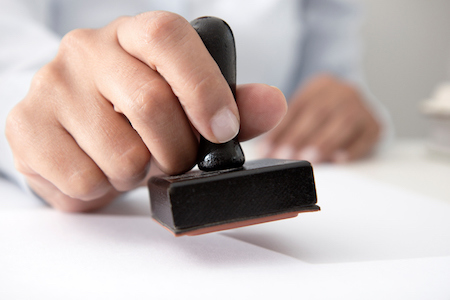Before you get the keys to your new home, you have to go through the closing process. This is where a notary public comes in. Also called a notary signing agent, this is one of the key people to help you in the closing process.
What is a Notary?
Many parts of the home-buying process require the help of professionals who work on your behalf, but may also be looking out for their own interests or those of the home seller. A notary is an impartial person who witnesses the signing process of closing documents.
They notarize, or legally sign off on, official documents and statements to ensure you aren’t being pressured to sign something. Notaries are appointed by state governments.
To become a notary, applicants must follow the steps enforced in their state. Generally, it requires filling out an application, paying the application fee, taking a training course and passing an exam. A bond is then filed and an oath of office is taken.
Part of a notary’s job is to be impartial, with no personal interest or bias for the documentation. To help ensure impartiality to you or your transaction, notaries are chosen at random for closings.
As part of their impartiality, a notary must never refuse to serve a person due to race, nationality, religion, politics, sexual orientation or status as a non-customer, according to the National Notary Association.
What Do They Do
A notary signing agent, or NSA, deals specifically with home closings and is trained to work with loan documents. They’re the last step to completing a home loan.
An NSA validates your identity and ensures you understand what you’re signing. They must be present with you during the closing. You may be required to take an oath declaring your identity and understanding of what you’re about to sign.
Upon completion, the NSA will add their signature, seal and notary license to the documentation, and then your documents will be considered notarized. Without it, your documents aren’t considered valid and your state won’t accept them for recording.
Notary fees vary, but can range from $25 to $40 for one or two notarizations. More notarizations can then cost about $10 each.








